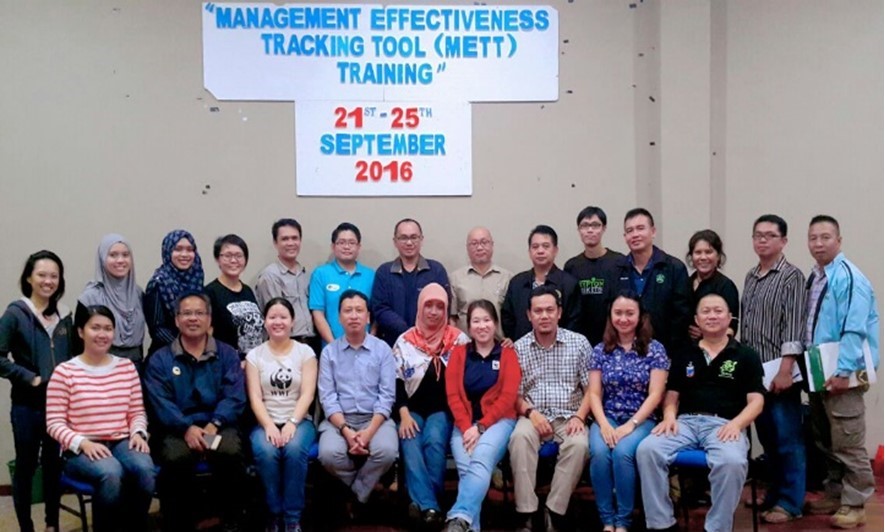
Since 2010 FORCLIME has been engaged in the Heart of Borneo (HoB) Initiative, an initiative of the three neighboring countries in the island of Borneo region of Kalimantan, Indonesia, Malaysia and Brunei Darussalam. The initiative promotes biodiversity conservation, sustainable development and livelihood improvement for the people living in the HoB area, particularly poor communities and women.
Shared learning on best practices from conservation and sustainable development for the benefit of the community is a main strategy to boost a change in natural resource management in the area. In this context, trained METT facilitators from FORCLIME and the Conservation Area Directorate at the Indonesian Ministry of Environment and Forestry (MoEF) conducted a training and shared learning event on METT from 21 – 25 September 2016 for 23 colleagues from the Sabah Forestry Department, Sabah Wildlife Department, Yayasan Sabah, Sabah Environmental Trust, and WWF Malaysia. The learning process was funded by WWF Malaysia.
METT stands for Management Effectiveness Tracking Tool that can help protected area authorities to assess how effectively their protected area is managed, and what they should do to maintain and/or improve existing conditions. As a management tool, METT consists of six elements, which are: context, planning, input, process, result and outcome. Threats analysis is also part of the tool, following as a second step after the assessment of general information of the protected area.
During the training in September 2016, a combination of methods ranging from lectures, group discussions, and field visits to Kinabalu National Park as well as an ECOLINC project site in the buffer zone of Kinabalu National Park were conducted to help participants in getting a better understanding about the application of METT.
Participants reported that the learning process was successful and met their expectations as expressed during the first day of the training. Some of the participants are planning to implement the tool at their conservation sites in the future to help improve the management of their protected areas.
For more information, please contact:
Ismet Khaeruddin, Strategic Area Manager, Biodiversity and Management of Protected Areas






